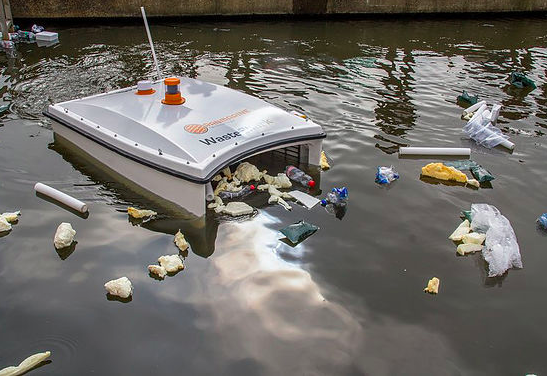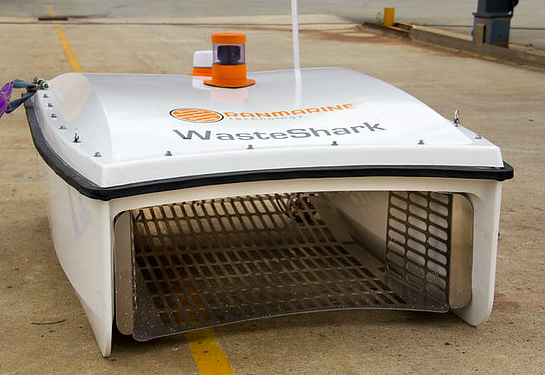A marine drone called the WasteShark is busy cleaning up plastic waste off the coast of Devon in the United Kingdom, according to the Independent.
The “shark,” an electric vehicle that traverses waterways, can autonomously gather up to 132 pounds of plastic waste at a time. If it’s deployed five days a week, it can remove 15.6 tons of plastic waste from a body of water per year, according to the machine’s creator, the Dutch technology company RanMarine.

“WasteShark is cheaper, greener, more effective, and less disruptive than other methods of dealing with marine litter,” said Oliver Cunningham, chief commercial officer at RanMarine, told the Independent.
“We hope to see our drone in cities and towns — wherever humans live on water — around the world,” he added.
Take Action: Protect Our Oceans! Prevent Ocean Plastic Pollution
The WasteShark has been deployed in five countries already and the first iteration in the UK was spearheaded by the environmental nonprofits World Wildlife Fund and Sky Ocean Rescue.
The two groups have long advocated against plastic waste in marine ecosystems and see the WhaleShark as a useful tool in preventing animals from being injured and otherwise harmed.

Each year, at least 8 million tons of plastic waste enter bodies of water, and more than 5 trillion pieces of microplastic currently contaminate the oceans. All of this plastic waste has been shown to harm everything from turtles to whales to coral to tiny amphipods that live at the bottom of the deepest marine trenches.
Read More: Why You Should Probably Never Use a Plastic Straw Again
“The marine protected areas in north Devon are home to some of the country’s most incredible coastlines and marine life, but plastic is having a devastating effect on our oceans,” Jenny Oates, UK seas program manager at WWF, told the Independent.
“The WasteShark will help us fight the rubbish that enters the harbour, snapping it up before the tide takes it out to sea and it ends up threatening wildlife in other precious marine areas,” she added.
WWF and Sky Ocean Rescue hope that the WhaleShark gets deployed in other bodies of water throughout the UK, but regard the machine as a minor player in a much broader effort to rid the oceans of plastic.
Today we launched #WasteShark 🦈 with @WWF_UK, An autonomous robot that can swallow up to 60 kg of floating debris every outing; reducing the risk of harmful rubbish entering our seas and threatening wildlife. ⛔️ Do you live near a seaside town that could use one of these? pic.twitter.com/NbYSrATSdI
— Sky Ocean Rescue (@SkyOceanRescue) March 4, 2019
Read More: Why Global Citizen Is Campaigning to Reduce Plastic Waste in the Oceans
The most important component in that effort, the groups argue, involves governments taking action to restrict how much plastic is produced in the first place. After all, if plastic had never entered bodies of water in the first place, then the WhaleShark wouldn’t need to exist.
So far, more than 60 countries have restricted plastic production and companies around the world are working on sustainable alternatives. For example, major consumer good brands are trying to revolutionize the takeout cup, transition to a “milkman model” of containers being returned and cleaned after use, and eliminate plastics altogether.
Other organizations are working to clean up the world’s oceans, rivers, and lakes. Massive beach clean-ups have been staged by everyday citizens in India, Norway, and Thailand. An ambitious project to eliminate the Great Pacific Garbage Patch has been spearheaded by a college dropout. And companies like Ikea are deploying their own plastic-collecting machines.
As news of the WhaleShark spreads, it will likely be deployed in rivers, lakes, and coastlines around the world.